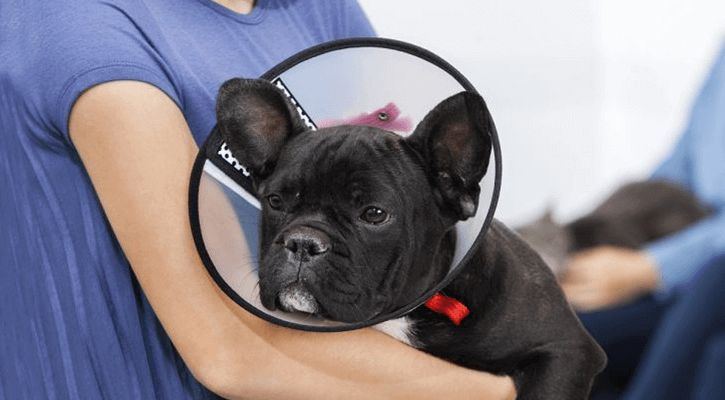Spay & Neuter

Every year thousands of stray and unwanted animals are euthanized in shelters across the United States. Many of these deaths are the avoidable result of owners failing to spay and neuter their pets. Even if you keep a close watch on your pet, accidents happen, and unexpected offspring means more animals that won’t be given the chance at full, happy lives.
Spaying and neutering can help end this cycle, and both procedures can have health benefits for pets.
Spaying
Spaying is a common surgical procedure performed on female cats and dogs. The process is called an ovariohysterectomy and involves removing the patient’s uterus, ovaries, and fallopian tubes, rendering the animal incapable of reproduction. The traditionally recommended age for spaying is 5-6 months (before the first heat cycle), however, recent studies suggest it may be beneficial to wait until skeletal maturity in some breeds, to reduce the risk of certain cancers and orthopedic diseases later in life. Our veterinarians will advise you on the ideal age to spay your individual pet.
Benefits:
- Prevents unwanted pregnancies
- Eliminates the risk of ovarian and uterine tumors
- Remove the possibility of uterine infections
What to expect after surgery
Spaying is a major surgery requiring 7-10 days of recovery time. An E-collar (cone-shaped collar) is recommended to prevent licking or chewing at the incision. Your pet will be on pain medication for about 4 days post-operatively, and exercise restriction is recommended for about 1 week.
Neutering
Neutering is performed on male cats and dogs. This process castrates the animal, removing their testicles and making them unable to impregnate females. The traditionally recommended age for neutering if 5-6 months, however, recent studies suggest it may be beneficial to wait until skeletal maturity in some breeds, to reduce the risk of certain cancers and orthopedic diseases later in life. Our veterinarians will advise you on the ideal age to spay your individual pet.
Benefits
- Placates the animal, reducing aggressive behavior and decreasing dominant tendencies
- Reduces roaming and spraying (territory marking)
- Eliminates the risk of testicular and prostate tumors
What to expect after surgery
Although less invasive than spaying, neutering is still a major medical procedure that requires some recovery time. Recovery may also include pain medication and lethargy is common for the first couple of days following the procedure. It’s extremely important that you monitor your pet to prevent the animal from licking or biting the incision to reduce the risk of infection.
Schedule a Consultation in Houston, TX today
To learn more about spaying and neutering, or to schedule an appointment, contact us at 713-466-8542.
